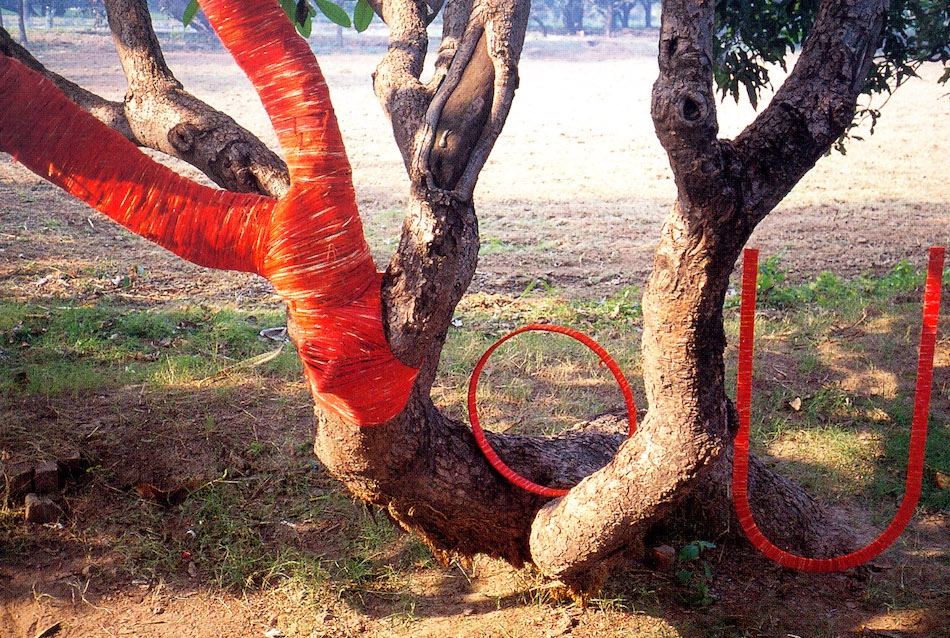Khoj International Artists’ Association is situated in the New Delhi neighbourhood commonly referred to as Khirkee Village, caught between Khirki Fort, built in the mid-fourteenth century under the Tughlaq Dynasty, and a vast luxury shopping centre. Khirkee is in transition, both in its rapid gentrification and in the quick turnover of its residential population of migrants, asylum seekers and refugees. It is one of many such neighbourhoods across the subcontinent – intensely hybrid areas in which informal economies flourish. Tensions have been on the rise, with Khirkee’s diverse population of Afghan, Somali, Nigerian, Cameroonian, Guyanese. Khirkee Voice, a quarterly newspaper published by the not-for-profit contemporary arts organisation Khoj and edited by artists Malini Kochupillai and Mahavir Singh Bisht, exemplifies how it might be possible to build networks and infrastructures in these neighbourhoods. Bringing together writing by and for the community, the artist-run newspaper is a rare instance of migrants being brought into an institutional fold and fairly compensated for their contributions.
‘Throughout the uncertainty, Khirkee’s engine keeps rolling,’ wrote the editors of the Khirkee Voice to frame its fourth issue, focused on ‘local economies’. A survey of the neighbourhood provides fresh insight into the erratic, and often harsh, economic reforms of the current government and their impact on this community. In another project made possible by Khoj, artist Swati Janu attempts to engage with the most successful of Khirkee’s informal economies by setting up a ‘phone recharge shop’ similar to those in which residents refill their phone plans and download the latest music from their home countries. Janu uses the space as an opportunity to research the disseminated content, and has also set up a small recording studio for people to make and record music too. Romeo Kiseke Lembisa, a well-known activist singer and poet in his hometown of Kinshasa – mixing political analogies and protest into popular tunes – arrived in India on refugee status in 2017, approached the recording studio and is now something of a local sensation. The project is characteristic of those supported by Khoj in that it looks to build long-term networks within the community that at least attempt to negotiate some of the complexities inherent to the locality in which they are based.
The team at Khoj is small: a curatorial and programming group comprising Mario D’Souza, Radha Mahendru and Mila Samdub, overseen by Pooja Sood. Sood has been director of the association since it was founded in 1997, the same year in which it first convened a workshop that has since become the template for its annual ‘PEERS’ residency. The legacy of Khoj is ripe for mythmaking: some of the most famous contemporary artists from India began there. ‘Khoj is an emblem of our vision of working together in difficult situations,’ writes artist Anita Dube in the catalogue for the initial workshop, ‘pushing against the establishment grain… creating sensitising encounters, addressing the binary polarisations that have hardened into unchangeable positions.’ The same difficulties linger in India today as 20 years ago, even though the art scene is more visible on the international stage than ever before. The gallery system breeds competitiveness between younger generations of artists, many of whom remain caught up in finding representation. Institutional support, as ever, is desperately rare. Khoj provides a template for a different type of art infrastructure, operating as an intermediary between artists, artworld and local community.
From the Spring 2018 issue of ArtReview Asia
